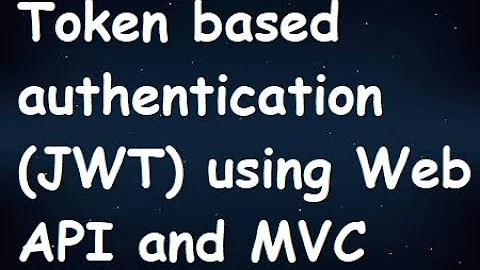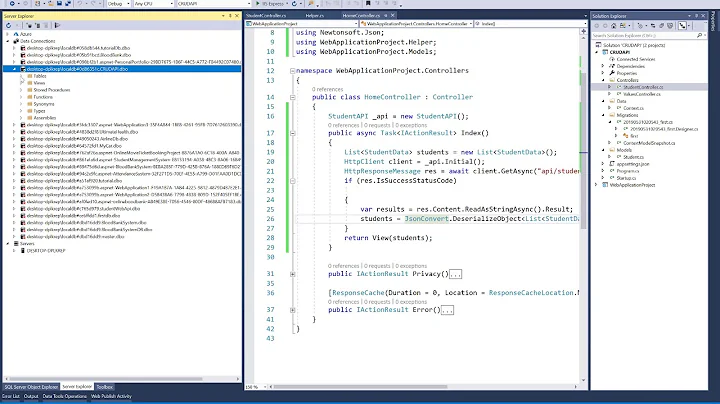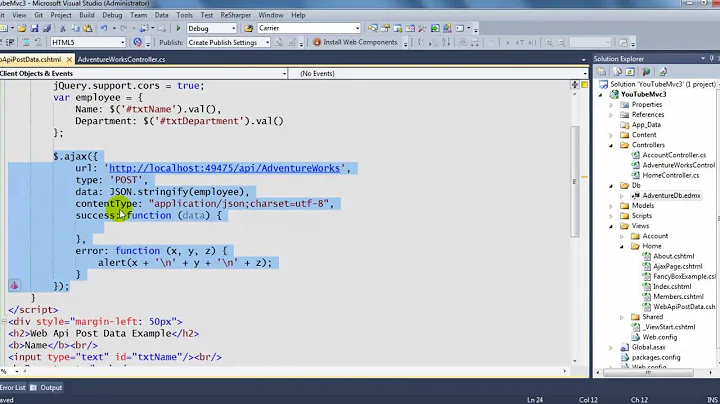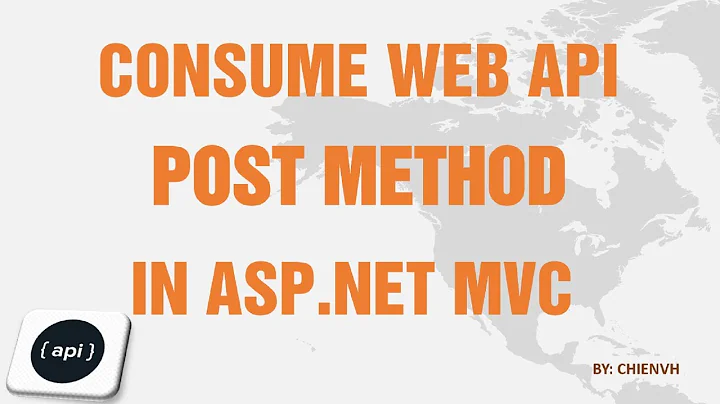Can I pass an interface based object to an MVC 4 WebApi POST?
Solution 1
You can do this fairly easily with a custom model binder. Here is what worked for me. (Using Web API 2 and JSON.Net 6)
public class JsonPolyModelBinder : IModelBinder
{
readonly JsonSerializerSettings settings = new JsonSerializerSettings { TypeNameHandling = TypeNameHandling.Auto };
public bool BindModel(HttpActionContext actionContext, ModelBindingContext bindingContext)
{
var content = actionContext.Request.Content;
string json = content.ReadAsStringAsync().Result;
var obj = JsonConvert.DeserializeObject(json, bindingContext.ModelType, settings);
bindingContext.Model = obj;
return true;
}
}
The Web API controller looks like this. (Note: should also work for regular MVC actions -- I've done something like this for them before as well.)
public class TestController : ApiController
{
// POST api/test
public void Post([ModelBinder(typeof(JsonPolyModelBinder))]ICommand command)
{
...
}
}
I should also note that when you serialize the JSON, you should serialize it with the same setting, and serialize it as an interface to make the Auto kick in and include the type hint. Something like this.
JsonSerializerSettings settings = new JsonSerializerSettings { TypeNameHandling = TypeNameHandling.Auto };
string json = JsonConvert.SerializeObject(command, typeof(ICommand), settings);
Solution 2
You are trying to deserialise to an interface. The serialiser won't know what type to instantiate unless it is told.
Take a look at TypeNameHandling option Posting a collection of subclasses
Or look at creating a custom JsonConverter. Take a look at this question How to implement custom JsonConverter in JSON.NET to deserialize a List of base class objects?
Solution 3
Json.NET (the default Json serializer for ASP.NET Web API) can handle this situation. All you need to do is change the serializer settings, and set TypeNameHandling to All (or Objects). This will add a "$type"-json property to your json, containing the type name of your instance. On the other side it'll try to deserialize to this type again.
We used this for ourselves, taking an abstract base class as type.
Related videos on Youtube
David Cornelson
Grizzled IT veteran trying to keep up with the kiddies and make a living.
Updated on September 15, 2022Comments
-
David Cornelson over 1 year
I want to have an API as such:
public class RelayController : ApiController { // POST api/values public void Post([FromBody]IDataRelayPackage package) { MessageQueue queue = new MessageQueue(".\\private$\\DataRelay"); queue.Send(package); queue.Close(); } }I'm getting a null value for 'package' so I'm wondering what might be going wrong. My only thoughts are that the default
JSONserializer can't handle this, but I'm unclear how to fix it. -
David Cornelson about 10 yearsThis is awesome and opens up overloaded JSON service factory interfaces. Thanks!
-
Kasey Speakman about 10 yearsAdditionally, JSON.Net can deserialize immutable messages (no public setters) so long as your property names match your constructor parameters (case insensitive).
-
Kasey Speakman over 9 yearsEventually, I decided it was just simpler to have my Post action with no parameters and deserialize the post body as part of the action. That way I can handle exceptions or whatever else I want to do.
-
MyDaftQuestions about 6 years
You are trying to deserialise to an interface. D'oh, but well explained. I've had the same issue, this one line made it crystal clear. Thanks. -
RashadRivera over 3 yearsLink provided is no longer available.











![Full CRUD using Consuming API - Calling Web API from MVC [ASP.NET Core]](https://i.ytimg.com/vi/CoQoWrO7Qhk/hq720.jpg?sqp=-oaymwEcCNAFEJQDSFXyq4qpAw4IARUAAIhCGAFwAcABBg==&rs=AOn4CLAMOZkHuLm1v7G2NADScFovPkSMuQ)


